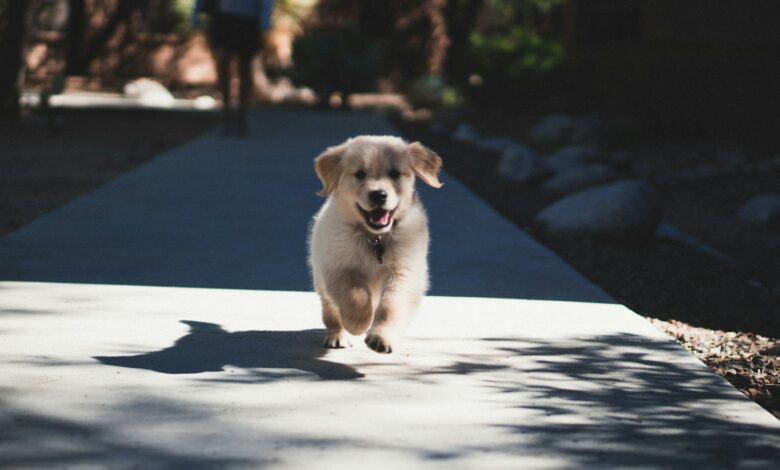Puppy Mood Swings and Not Listening: Causes and Solutions

Puppies are full of energy, curiosity, and sometimes unpredictable behavior. If your puppy is experiencing mood swings and not listening, it can be frustrating. However, understanding the causes behind these behaviors and how to manage them can help strengthen your bond with your pup. In this guide, we’ll explore the reasons behind puppy mood swings, ways to improve their behavior, and how to train them effectively.
Table of contents
Understanding Puppy Mood Swings
Just like humans, puppies go through different emotional states. Their mood swings can be influenced by various factors, including their environment, health, and developmental stage.
Common Causes of Puppy Mood Swings
- Teething Pain: Puppies begin teething around 3-6 months, which can cause discomfort and make them irritable.
- Lack of Exercise: Puppies have a lot of energy. Without sufficient physical activity, they may become restless, anxious, or aggressive.
- Inconsistent Training: If rules are not consistently enforced, puppies can become confused and exhibit mood swings.
- Separation Anxiety: Being left alone for long periods can cause stress and mood changes.
- Diet and Nutrition: Poor diet or irregular feeding schedules can impact their mood and behavior.
- Fear and Overstimulation: Loud noises, unfamiliar environments, or too much stimulation can cause emotional fluctuations.
- Hormonal Changes: As puppies grow, hormonal changes can influence their moods and reactions.
Online Resource: American Kennel Club – Puppy Development
Why Puppies Don’t Listen
Training a puppy requires patience and consistency. If your puppy isn’t listening, it may be due to the following reasons:
Distractions in the Environment
Puppies are naturally curious, and new sights, sounds, and smells can make it hard for them to focus.
Lack of Training Reinforcement
If training is inconsistent, a puppy won’t learn commands effectively.
Short Attention Span
Young puppies have limited attention spans. Training sessions should be short and engaging.
Fear or Anxiety
If a puppy is anxious or scared, they may ignore commands as a defense mechanism.
Testing Boundaries
Puppies may intentionally ignore commands to test their limits.
Online Resource: The Humane Society – Puppy Training Tips
How to Improve Your Puppy’s Behavior
Establish a Consistent Routine
- Set regular meal times, play sessions, and training periods.
- Maintain consistency with commands and rules.
Provide Mental and Physical Stimulation
- Take your puppy for regular walks.
- Provide interactive toys and puzzles to keep them mentally engaged.
Use Positive Reinforcement Training
- Reward good behavior with treats and praise.
- Avoid punishment-based training methods, which can cause fear.
Socialization
- Expose your puppy to different environments, people, and animals.
- Ensure socialization experiences are positive.
Online Resource: ASPCA – Puppy Socialization

Training Techniques to Improve Listening
Basic Commands
- Sit: Hold a treat close to your puppy’s nose and move your hand up until they sit.
- Stay: Have your puppy sit, then hold up your hand and say “Stay.” Reward them if they remain in place.
- Come: Call your puppy’s name enthusiastically and reward them when they come.
Short and Frequent Training Sessions
- Train for 5-10 minutes at a time to prevent boredom.
- Keep training sessions fun and engaging.
Avoid Negative Reinforcement
- Instead of scolding, redirect unwanted behavior with a positive alternative.
Online Resource: Victoria Stilwell – Positive Reinforcement Training
Addressing Specific Mood Swings and Behavioral Issues
Aggressive Outbursts
- Identify triggers such as resource guarding or fear.
- Redirect aggression with toys and commands.
Excessive Barking
- Determine the cause (boredom, alerting, or seeking attention).
- Train with “quiet” commands and positive reinforcement.
Chewing and Destructive Behavior
- Provide appropriate chew toys.
- Keep valuable items out of reach.
Online Resource: PetMD – Puppy Behavior Issues
When to Seek Professional Help
If your puppy’s mood swings and disobedience persist despite training, consider consulting a professional trainer or a veterinarian.
Signs That Professional Help May Be Needed:
- Extreme aggression or fearfulness.
- Destructive behavior despite ample exercise.
- Unresponsiveness to training efforts.
Online Resource: Association of Professional Dog Trainers

Puppy Mood Swings
Understanding and managing puppy mood swings and disobedience is crucial for a healthy and happy relationship with your pet. By providing consistent training, mental stimulation, and a loving environment, you can help your puppy grow into a well-behaved and obedient companion. With patience, the right training techniques, and positive reinforcement, you can successfully navigate your puppy’s behavioral challenges and enjoy a lifelong bond.
FAQs on Puppy Mood Swings
Why does my puppy have mood swings?
Puppies experience mood swings due to teething, hunger, overstimulation, or changes in their environment.
How do I know if my puppy is just being stubborn or experiencing mood swings?
If your puppy is usually obedient but suddenly becomes unresponsive, it could be mood-related rather than stubbornness.
What causes a puppy to ignore commands?
Distractions, lack of training consistency, fear, or not associating commands with rewards can cause a puppy to ignore instructions.
Can mood swings be a sign of illness in puppies?
Yes, sudden behavior changes can indicate health issues like pain, digestive problems, or infections. Consult a vet if unsure.
How can I calm my puppy during a mood swing?
Give them a quiet space, engage in gentle play, or offer a chew toy to redirect energy and soothe frustration.
Why does my puppy listen sometimes but ignore me at other times?
Puppies have short attention spans. Ensure training sessions are engaging, rewarding, and held in distraction-free environments.
Does socialization help with puppy mood swings?
Yes, exposing puppies to different people, pets, and environments helps them develop confidence and reduces erratic behaviors.
How can I make my puppy more obedient?
Use positive reinforcement, keep training sessions short and fun, and be patient and consistent with commands.
Can diet affect my puppy’s mood?
Absolutely! Poor nutrition, low-quality food, or irregular feeding schedules can lead to mood swings and hyperactivity.
When should I seek professional training for my puppy?
If your puppy shows persistent disobedience, aggression, or extreme anxiety, a professional trainer can help correct behavior issues.








